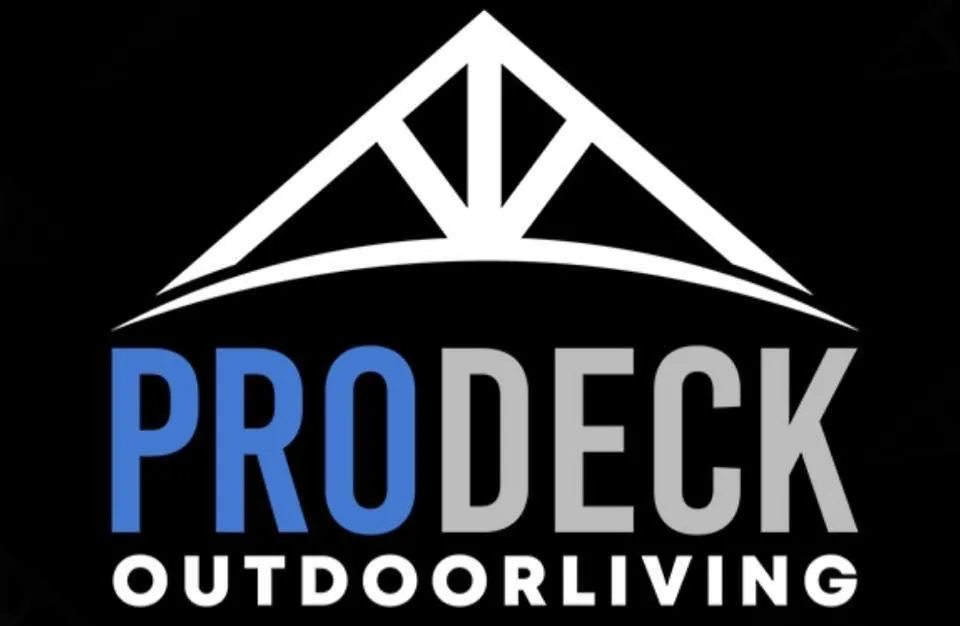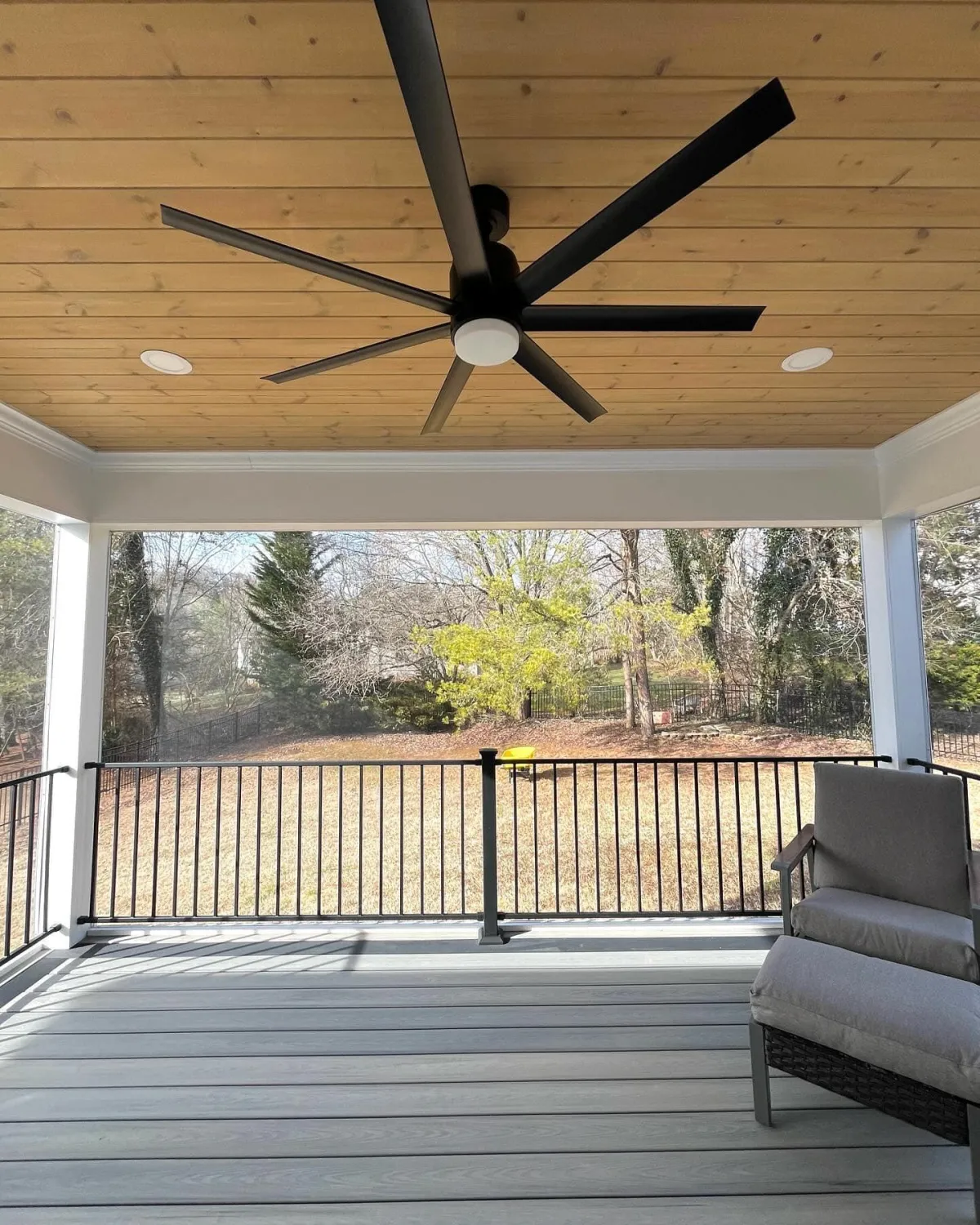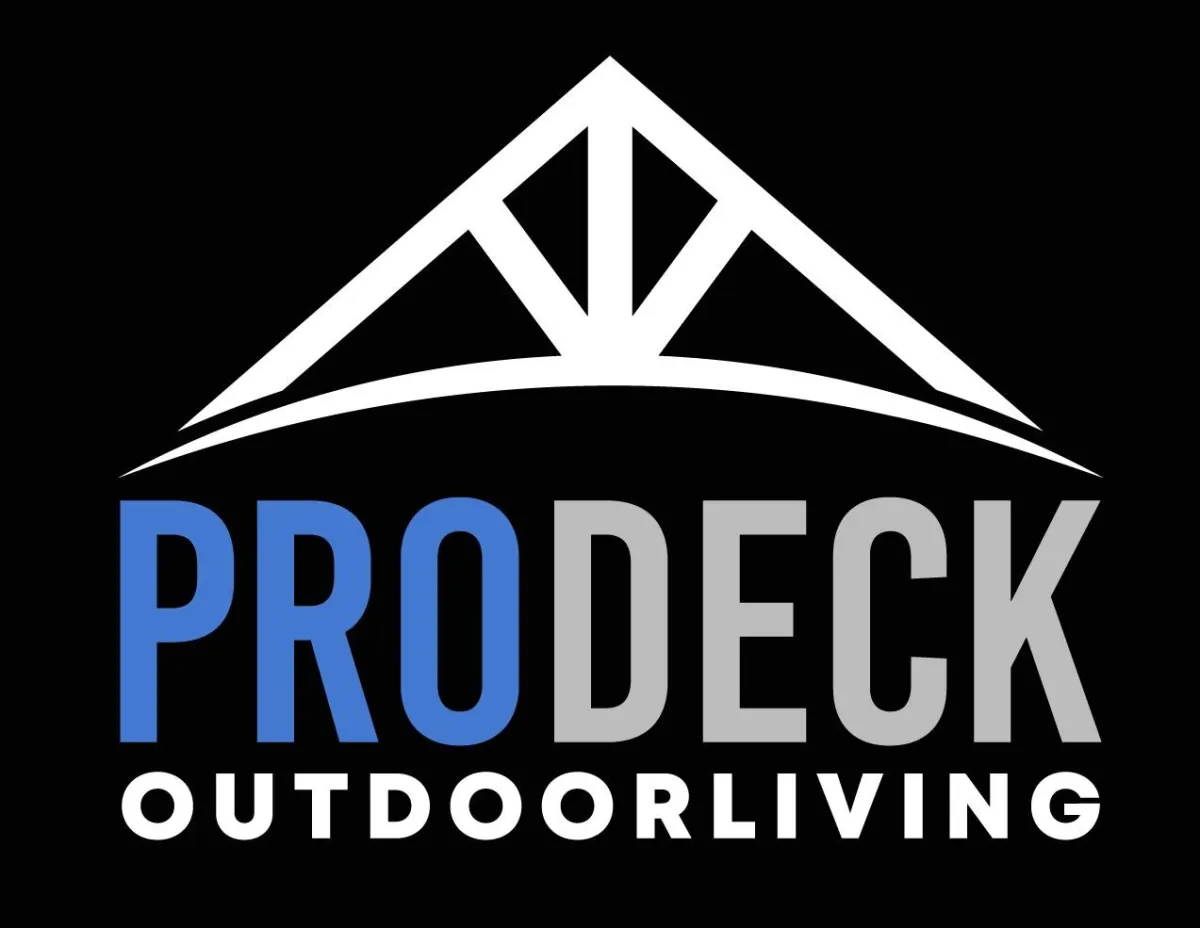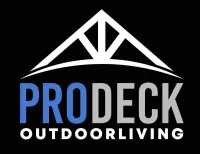
Tennessee’s Leading Deck & Patio Cover Solutions
Blog

Can Decks Be Built On Uneven Terrain Or Slopes?
Yes, decks can be built on uneven terrain or slopes by using adjustable supports or footings to level the structure, constructing a sturdy frame that follows the contour of the land, selecting flexible decking materials that can accommodate irregular shapes, ensuring compliance with safety standards and local codes for railings and stairs, and seeking professional guidance for specialized design and construction techniques.
Building a deck on uneven terrain or slopes requires expertise and careful planning to ensure stability and safety throughout the structure's lifespan. At ProDeck Outdoor Living, we specialize in creating durable and beautiful outdoor living spaces, tailored to meet the unique challenges posed by sloped terrains.
Key Takeaways:
Assessment of the Slope: Understanding the degree of incline is crucial. Gentle slopes are easier to work with, while steeper slopes require more advanced construction techniques.
Site Preparation: Leveling the ground through excavation and grading is essential. Using concrete support posts or slabs helps create a stable foundation, especially on slopes.
Deck Design: Incorporating steps, terraces, or multi-level designs can enhance the aesthetics and functionality of the deck, harmonizing with the natural contours of the land.
Materials and Maintenance: Choosing durable materials like composite decking reduces maintenance needs and ensures longevity, ideal for varied terrain conditions.
Building Codes and Permits: Compliance with local regulations is critical. Sloped terrain often has specific requirements to ensure structural integrity and safety.
Assessment of the Slope for Deck Construction
Assessing the slope is a critical first step in planning for deck construction, ensuring stability and safety throughout the project. Understanding the degree of incline helps determine the construction techniques and materials needed to create a durable and functional deck.
Degree of Incline
Begin by measuring the slope to determine its steepness. Gentle slopes are generally easier to work with compared to steep ones, which may require more complex engineering solutions.
Impact of Slope
Consider how the slope will affect the deck's design and layout. Steeper slopes may necessitate terracing or multi-level designs to accommodate the natural contours of the land.
Soil Composition
Evaluate the soil composition to assess its stability and drainage capabilities. Different soils may require varying levels of excavation and groundwork to ensure a solid foundation.
Potential Hazards
Identify any potential hazards such as tree roots, underground utilities, or water runoff patterns that could affect the stability and longevity of the deck.
Professional Assessment
For accurate measurements and expert advice, consider consulting with a professional contractor or engineer specializing in deck construction on sloped terrain.
By carefully assessing the slope and understanding its implications, homeowners can ensure their deck is built to withstand the challenges posed by uneven terrain, providing years of enjoyment and enhancing the overall value of their property.
Site Preparation Techniques for Deck Construction
Preparing the site properly is crucial for the successful construction of a deck, ensuring stability and longevity. Here are essential techniques for site preparation:
Excavation: Begin by excavating the area where the deck will be built. Remove vegetation, rocks, and debris to create a clean, level surface.
Grading: Grade the soil to achieve a uniform slope away from the house. This promotes proper drainage and prevents water from pooling around the deck.
Foundation Preparation: Depending on the terrain, establish a solid foundation using concrete support posts or slabs. These provide stability and support for the deck structure, especially on uneven or sloped ground.
Post Installation: Dig holes for the support posts according to local building codes and manufacturer guidelines. Ensure posts are securely anchored in concrete to withstand the weight and movement of the deck.
Adjustments for Slope: Use pedestal extenders or adjust the height of support posts to accommodate variations in terrain height. This ensures the deck remains level and stable.
Utility Checks: Before finalizing the site preparation, check for underground utilities or irrigation systems that could interfere with construction. Make necessary adjustments to avoid damage or disruption.
Proper site preparation sets the foundation for a durable and safe deck, minimizing future maintenance and enhancing the overall aesthetics of your outdoor space.
Deck Design Strategies for Uneven Terrain
Designing a deck on uneven terrain requires creative strategies to maximize space and ensure structural integrity. Here are key design considerations for building a deck on varied landscapes:
Multi-Level Decks: Utilize terracing or multi-level designs to follow the natural contours of the terrain. This not only enhances visual appeal but also allows for separate areas dedicated to different activities.
Step Integration: Incorporate steps seamlessly into the design to navigate changes in elevation. Steps can be integrated into the deck itself or built as separate features leading to different levels of the outdoor space.
Customized Platforms: Create customized platforms or landings at different heights to accommodate specific needs, such as seating areas or outdoor kitchens, while maintaining a cohesive design.
Railing Adaptation: Adjust railing heights and styles to meet safety requirements while complementing the deck's overall aesthetic. Consider using materials that blend well with the natural surroundings.
Enhanced Views: Take advantage of elevated viewpoints by orienting seating areas or features to capture scenic vistas or overlooks, enhancing the outdoor experience.
Materials Selection: Choose durable decking materials that can withstand varied terrain conditions, such as composite decking or treated wood, ensuring longevity and minimal maintenance.
By integrating these design strategies, homeowners can create a functional and visually appealing deck that harmonizes with the natural topography of their property.
Decking Materials and Maintenance on Uneven Terrain
Selecting the right decking materials and implementing proper maintenance practices are crucial for ensuring longevity and durability, especially on uneven terrain. Here’s a detailed look at considerations for decking materials and maintenance:
Composite Decking: Known for its durability and low maintenance, composite decking is ideal for uneven terrain. It resists warping, cracking, and fading, making it suitable for varying weather conditions.
Pressure-Treated Wood: This traditional option is cost-effective and treated to resist rot and insect damage. It can be a suitable choice with proper sealing and regular maintenance to prevent moisture-related issues.
Cedar or Redwood: These natural wood options offer a rich appearance and natural resistance to decay. Regular staining or sealing is recommended to maintain their appearance and durability on uneven surfaces.
PVC Decking: PVC decking is lightweight, durable, and resistant to moisture, making it a good choice for areas prone to weather extremes or high humidity.
Aluminum Decking: Lightweight and durable, aluminum decking is resistant to rust and corrosion. It’s a low-maintenance option that can withstand uneven terrain and harsh weather conditions.
Maintenance Tips: Regularly inspect the deck for signs of wear, especially on uneven surfaces where water pooling or runoff may occur. Clean debris and dirt buildup to prevent mold or mildew growth, and treat any stains promptly to maintain the deck’s appearance.
By choosing appropriate decking materials and following recommended maintenance practices, homeowners can ensure their deck remains attractive, safe, and functional on uneven terrain for years to come.
Building Codes and Permits for Decking on Slopes
Understanding and adhering to building codes and permit requirements is essential when constructing decks on slopes to ensure structural integrity and compliance with safety standards. Here’s what homeowners should consider regarding building codes and permits:
Local Regulations
Check with local building authorities to understand specific requirements for deck construction on sloped terrain. Regulations may vary based on location and terrain characteristics.
Structural Considerations
Building codes often specify minimum standards for foundation support, railing height, and load-bearing capacity, particularly important on sloped surfaces where stability is critical.
Erosion Control
Some areas may require additional measures for erosion control, especially on steep slopes. This could involve using retaining walls or specialized drainage systems to prevent soil movement and runoff.
Setback Requirements
Determine setback requirements from property lines or neighboring structures, which may affect deck placement and size, particularly on sloped land.
Permit Application Process
Prepare for the permit application process, which may include submitting detailed plans, engineering assessments, and paying fees. Engaging a professional contractor can facilitate compliance with these requirements.
Inspections
Building departments typically conduct inspections at various stages of construction to ensure compliance with approved plans and local regulations. These inspections verify safety measures and adherence to building codes.
By proactively addressing building codes and permit requirements, homeowners can navigate the complexities of deck construction on slopes effectively.
FAQs
Can any deck design be adapted for sloped terrain? Yes, with proper planning and design adjustments, almost any deck style can be adapted to fit sloped terrain, ensuring both functionality and aesthetics.
What are the advantages of building a deck on uneven ground? Building on uneven ground allows for unique landscaping opportunities and can enhance the overall appeal and value of your property.
Do decks on slopes require more maintenance? Depending on the materials used, decks on slopes may require additional maintenance to ensure structural integrity and prevent erosion.
How can I ensure my sloped deck is safe during all seasons? Proper drainage and using non-slip materials are essential to maintaining safety on sloped decks, regardless of weather conditions.
What permits are needed to build a deck on sloped terrain? Local building codes vary, but typically, permits are required for any construction that alters the landscape, ensuring compliance with safety standards.
Mastering Sloped Deck Construction: ProDeck Outdoor Living Offers Expert Solutions
Building a deck on uneven terrain or slopes is a testament to innovation and craftsmanship. At ProDeck Outdoor Living, we specialize in transforming challenging landscapes into functional and beautiful outdoor spaces. Trust us to turn your vision into reality, creating a deck that enhances your home's appeal and your outdoor living experience.
Contact us today for a consultation and discover how we can build the perfect deck tailored to your unique terrain. Let’s create a space where beauty meets functionality, turning your house into a home.
BLOG
Why We Care About Our Clients at ProDeck Outdoor Living
At ProDeck Outdoor Living, our passion goes beyond building beautiful outdoor spaces. We care deeply about our clients because we believe that a home’s outdoor area should be more than just a deck or patio—it should be a space where memories are made, laughter is shared, and moments of peace and relaxation are enjoyed. Our commitment to excellence is rooted in our dedication to the people we serve.
Our Why: Creating Meaningful Outdoor Spaces
We do what we do because we understand the value of outdoor living. Whether it’s a backyard deck where a family gathers for summer barbecues, a pergola that provides shade for afternoon reading, or a custom patio that serves as the heart of celebrations, we take pride in transforming outdoor areas into places of comfort and connection. Our goal is to design and build spaces that enhance our clients’ lifestyles and bring their visions to life.
Building More Than Just Structures
To us, every project is personal. We take the time to listen to our clients, understand their needs, and collaborate closely to bring their dreams to reality. Every detail matters because we know that a well-crafted outdoor space can add joy and value to a home. Our team’s dedication to quality craftsmanship and customer satisfaction is what sets us apart. We treat every project as if it were for our own home, ensuring that we deliver not just a deck or patio, but an experience that exceeds expectations.
A Commitment to Trust and Transparency
Trust is at the core of what we do. From the initial consultation to the final touches, we believe in clear communication, honesty, and reliability. Our clients trust us to bring their outdoor visions to life, and we take that responsibility seriously. That’s why we work with high-quality materials, skilled professionals, and a customer-first approach to ensure that every project is completed with precision and care.
Why We Care
At the heart of our work is a genuine passion for improving lives through outdoor living. We care about our clients because we believe in the power of well-designed spaces to create happiness, relaxation, and unforgettable moments. Seeing the joy on a client’s face when they step onto their new deck or patio for the first time is why we do what we do.
Thank you for trusting ProDeck Outdoor Living to bring your outdoor dreams to life. We’re
honored to be a part of your journey in creating spaces that truly feel like home.
THE BEST IN OUTDOOR LIVING & CONSTRUCTION
Request An Estimate To Get Started Today!
Copyright © ProDeck Outdoor Living. 2026. All Rights Reserved. Privacy Policy. Terms & Conditions. Web Design by Fused Media


